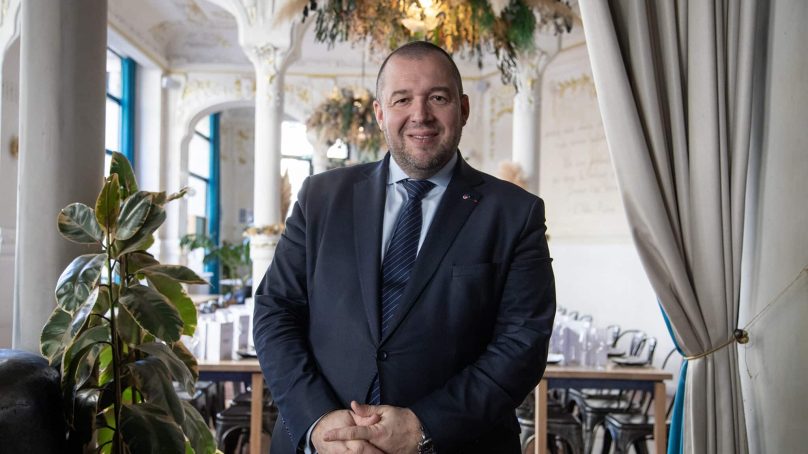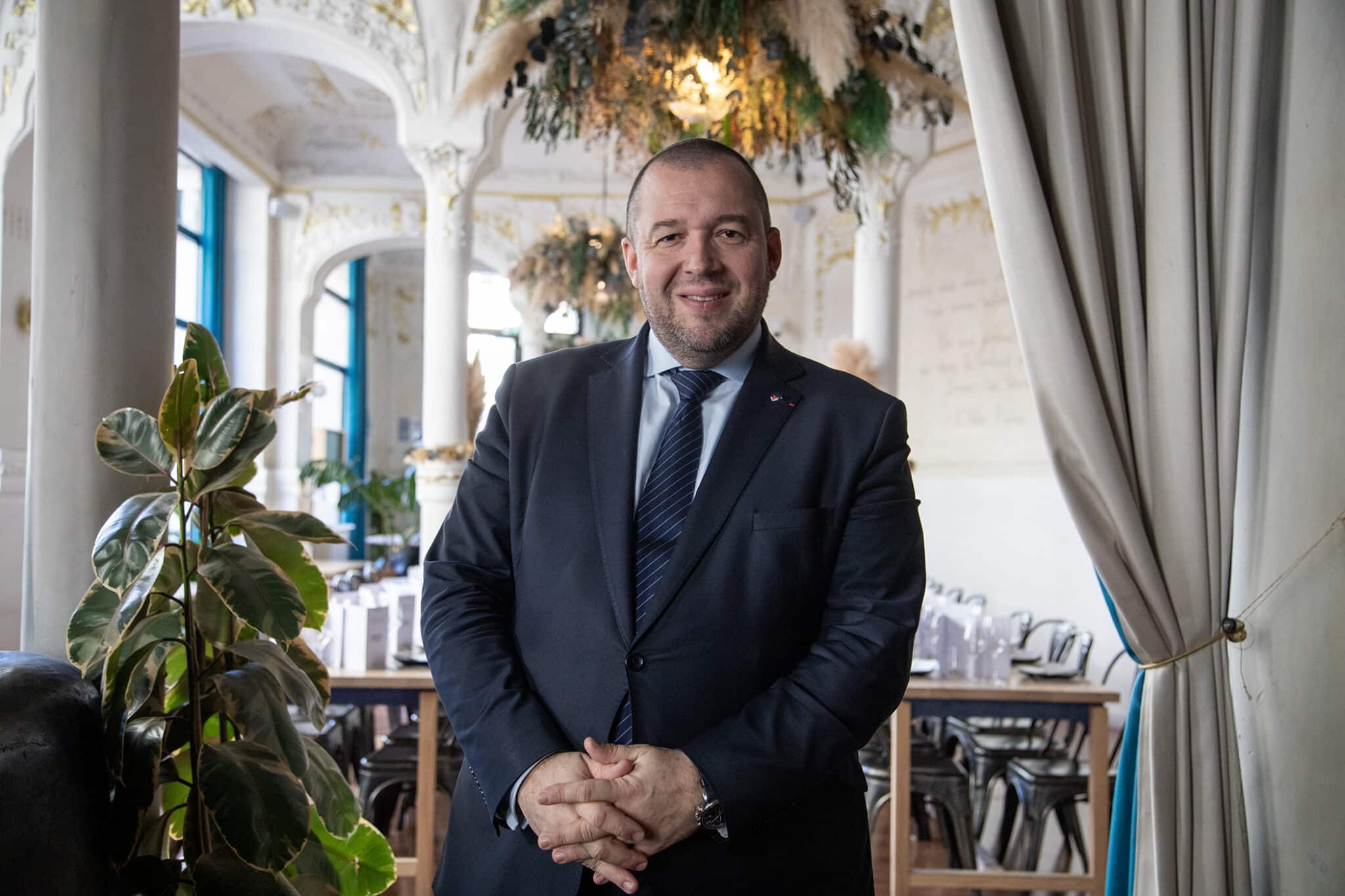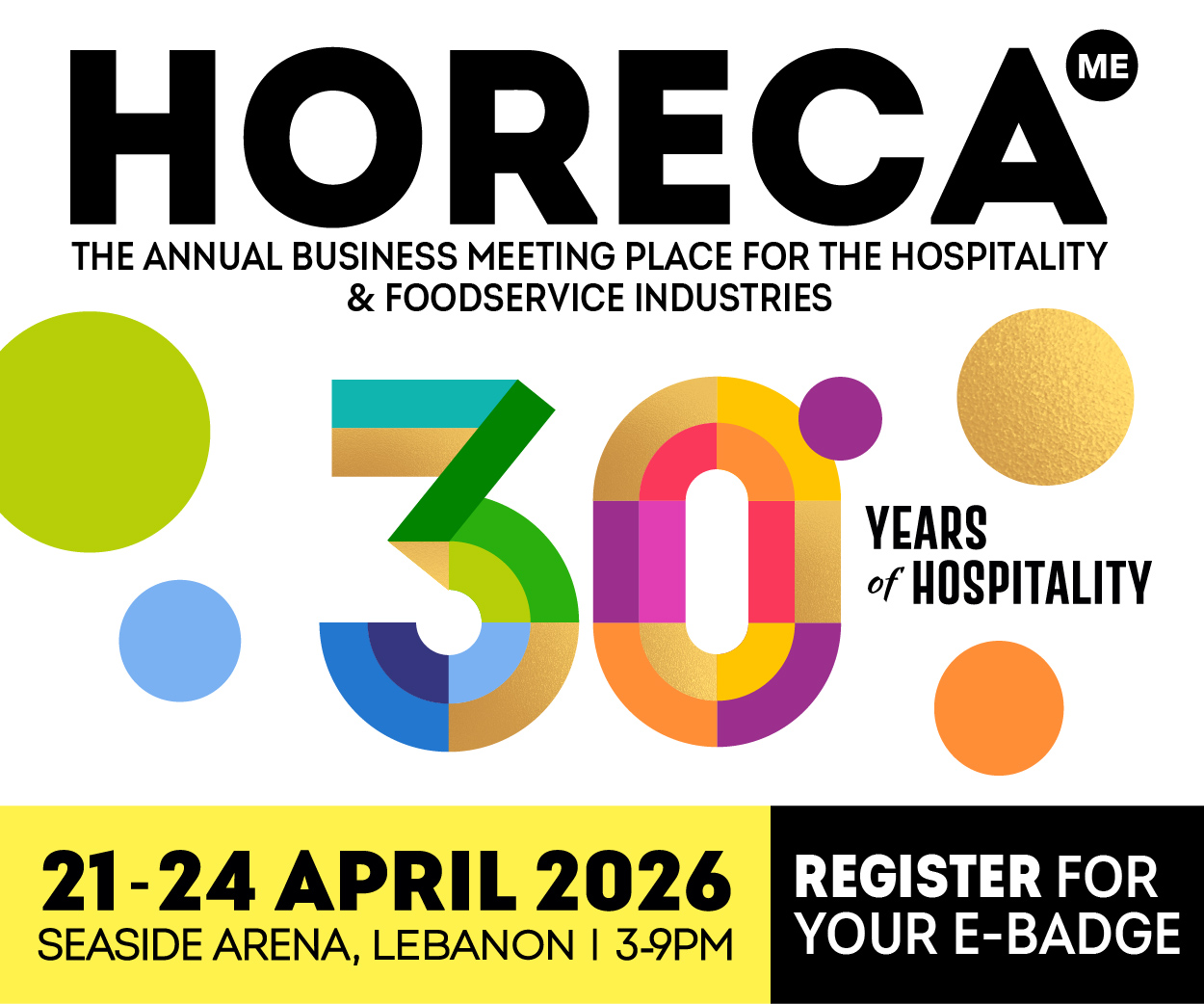The youngest ever winner of Meilleur Ouvrier de France in 2004, Guillaume Gomez has spent 25 glorious years at the Elysée Palace, serving four French presidents. Appointed the ambassador for gastronomy by President Emmanuel Macron in March 2021, Gomez discusses his role as personal representative of the president of the French republic for food and gastronomy and vision for promoting French culinary excellence globally.
As the ambassador of French gastronomy, what values have you upholded?
As an ambassador, I advocate the values dear to France: liberty, equality and fraternity, of course. Moreover, I promote the values that can be conveyed through gastronomy, namely transmission, sharing and commitment. Specifically, this includes a more engaged approach to society, health and the environment. Therefore, we try to work daily with all the actors in the world of gastronomy. This involves producers and farmers, extending all the way to the transformation of our waste. Consequently, we focus on the entire chain to ensure that our food today, and even more so tomorrow, is more committed. Ultimately, this is for oneself, for others and for the environment.
You believe that “eating is a political act.” What do you mean by this?
Is eating a political act? Yes, for several reasons. First, consumption has an impact. It affects you, your health, the producer and the environment. Today, pollution is largely due to our food habits, including production, processing and distribution. Therefore, all these factors matter. Choosing specific products based on how they are made and their origins has consequences.
So, yes, consuming is a political act. It’s essential to consider this today. In France, we promote local, organic consumption that respects societal and environmental values. We don’t stop people from consuming imported products like coffee or chocolate. Instead, we encourage thoughtful choices and common sense, especially when local, seasonal products are available. I believe that we should consume these products as much as possible.
In your opinion, is French gastronomy more than just fine-dining restaurants?
Yes, gastronomy is more than just restaurants. When we talk about gastronomy, we don’t just mean gourmet dining. In fact, it includes our renowned chefs and pâtissiers, of whom we are very proud. However, gastronomy is also the art of daily eating, be it breakfast, lunch, dinner or supper. It’s about paying attention to what we consume. We choose quality products that respect production methods and honor artisans. These artisans contribute to this beautiful gastronomy. Furthermore, it’s important to consider animal welfare, the environment and the pollution and waste we generate.
This attention to detail spans from breakfast, with a fresh baguette from the baker, to dinner with various products. We should always focus on where and how our food was produced.
You are the author of several highly acclaimed recipe books. What inspires you?
Yes, I’ve written eight books, including two awarded Best Cookbook in the World for children. Initially, I didn’t feel the need or desire to write books. However, I received many requests. Sharing our expertise is important for a Meilleur Ouvrier de France like me. It is part of our identity, so we have a duty to pass on knowledge. Thus, I’ve written several books on different themes. One focuses on fruits and vegetables, as I was the patron of the International Year of Fruits and Vegetables. Another book explores menus and the concept of gastronomic diplomacy. I donated my menu collection to the National Library of France for public viewing on Gallica.
Additionally, I wrote a book with the Club des Chefs des Chefs, founded by Gilles Bragard. This club, which is more than 45 years old, includes chefs of heads of state. The book showcases their cuisine and daily life serving presidents and royalty.
What inspires you?
As an ambassador of gastronomy, I have been tasked with major international events. These include the Rugby World Cup and the Paris 2024 Olympic and Paralympic Games. During these events, when France is in the global spotlight, I aim to showcase our gastronomic values. For example, for the Rugby World Cup, we organized numerous gastronomy-related activities. Furthermore, we worked with those responsible for the event’s organization. Our goal was to highlight French cuisine both inside and outside the stadiums. Moreover, we wanted tourists and French participants to experience our gastronomy. Each region of France was emphasized. French gastronomy’s global reputation relies on those who create it: from soil work to waste management. This includes all our producers and farmers from every French region. The goal was for all French territories to shine.
What can we expect in terms of gastronomy at the Olympic Games 2024?
We’ll mobilize many chefs and more. Our aim is to showcase gastronomy from all regions, including overseas territories, and promote values of healthier eating, environmental responsibility and minimal waste production. Furthermore, we prioritize local sourcing, organic products and reducing plastic use wherever feasible at different venues. These steps will ensure that the Paris 2024 Olympics and Paralympics are a culinary success.










